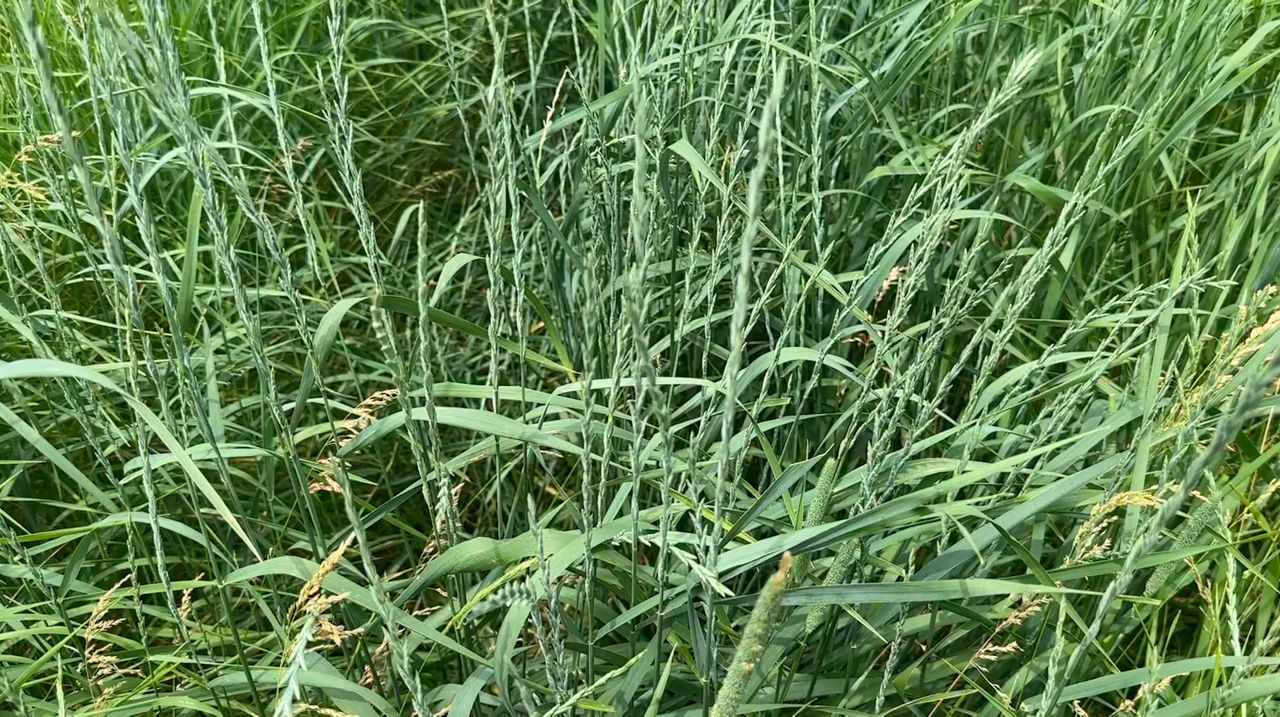EAST TROY, Wis. — The Michael Fields Agricultural Institute has planted a new type of grain for a research trial.
The goal of the trial is to develop recommendations to farmers for planting the crop and promote it to Wisconsin businesses.
Kernza is a relatively new crop. It was developed in the last two decades to improve on the characteristics of grain.
Nicole Tautges is an agroecologist at the Michael Fields Agricultural Institute. She said this crop could be an agricultural game-changer.
“Can we produce grain crops while also getting the environmental benefits of what a perennial crop does for us, which includes keeping the ground covered year-round, capturing more solar radiation, more carbon?” said Tautges.
Kernza is different from annual wheat. That’s because one planting can provide harvests for multiple years.
Tautges said one of the problems they are trying to solve is that currently, Kernza only yields about 25% of what its counterpart produces.
“There is still a lot of breeding work that still needs to go into improved grain yields, but the breeders project that yields will meet those of annual wheat in about another 20 years. Much more rapid with our modern technology,” said Tautges.
Tautges started planting the crop at Stute Farms in 2021.

Jim Stute is the owner of the farm. Stute said he prides himself on promoting sustainability and conservation.
He said he wanted the agricultural institute to plant the crop at his farm because he believes in what it can do.
“It’s capturing a lot of solar energy that wouldn’t be otherwise wasted on bigger soil, so that’s why it is important, but it’s also got a really dense rooting system, which is really important for holding the soil in place. So it’s a perfect conservation crop with income potential,” said Stute.
Tautges said getting more farmers to plant Kernza is only part of their goal.
“Really motivated farmers are going to grow this, but if they can’t sell the grain, then that’s a problem. You can’t keep doing that as a business, so we really need more entrepreneurs around this,” said Tautges.
Tautges said she will continue to work on the most effective strategies for planting Kernza.
She said she hopes more food-based companies will eventually start using the grain for their products.



